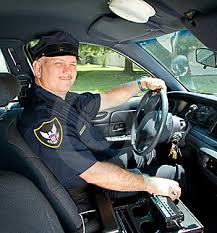Mayor's plan is assault on rights
I am afraid that Mayor Mufi Hannemann is treading in dangerous waters in proposing a plan that would force severely mentally ill homeless people to receive treatment. Is the City and County of Honolulu willing to use the medical profession to deprive people of their liberty, under the flimsy pretext of mental illness?
The plan could allow police who get clearance from a police psychologist to bring a severely mentally ill person to a hospital for evaluation. This homeless person would go through a civil process that would commit them to mandatory outpatient treatment.
Existing laws that allow authorities to impose involuntary outpatient mental health treatment on homeless people is simply a system of social control disguised as treatment. Should forced psychiatric drugging be interpreted as assault and battery or medical treatment?
Hooipo DeCambra
Waianae
Mayor Addresses Issue Of Chronic Homeless
Suggests Involuntary Out-Patient Treatment For Mentally Ill Homeless
POSTED: 7:16 pm HST July 14, 2010
UPDATED: 10:19 pm HST July 14, 2010
Currently, Oahu's most severely mentally ill homeless get help only after they've been arrested or they're sick enough to be taken to hospital emergency rooms, but after that, many return to the streets.
Debbie Morikawa, the city's specialist on homelessness, said the problem is there is no continuing care for the mentally ill homeless once they go back to the streets where most of them refuse further treatment.
Police psychologist Michael Christopher said Wednesday, "You can't help someone who is seriously mentally ill if they are living on the sidewalks."
Morikawa said, "Up until now, we have not had any tools to deal with people who refuse treatment, but having something like the involuntary treatment law would mean we would be able to provide services and supports to people on an out-patient basis."
Mayor Mufi Hannemann brought up "involuntary treatment" Wednesday as one of the options under consideration to help Oahu's vagrants and chronic homeless who refuse to leave parks and other public places.
Hannemann said, "There is a solid state law on involuntary mental health outpatient treatment for people with a severe mental disorder that has never been used. We want to tap into that law by pursuing a test case to establish a system."
Under the law, police with agreement and permission from a police psychologist could bring a severely mentally ill homeless person to the hospital for evaluation, and then, through a civil process through family court set up guardianship for the person and mandatory outpatient treatment.
 http://bit.ly/b2NZhm
http://bit.ly/b2NZhm http://bit.ly/b2NZhm
http://bit.ly/b2NZhm

